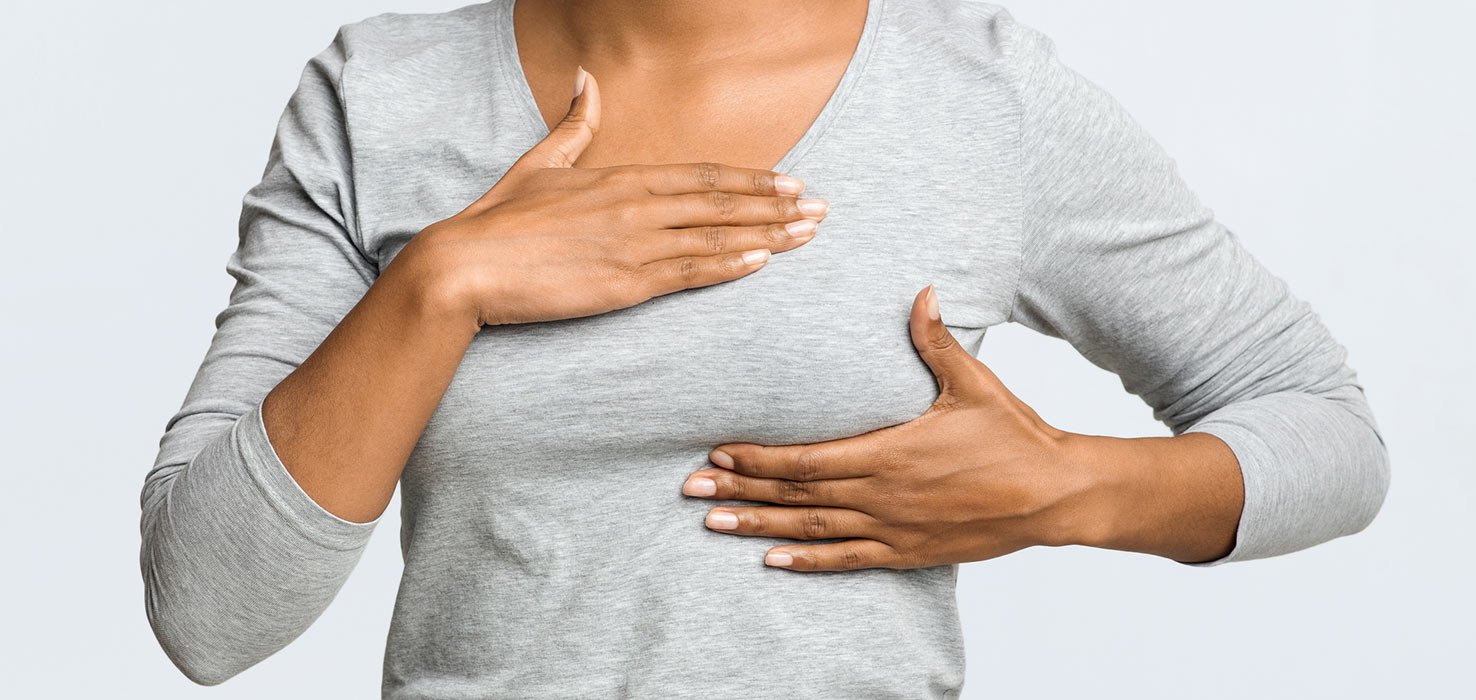
Red Spot on Breast: Bug Bite, Pimple or Cancer?
Did you recently notice a red spot on one of your breasts? If so, you’ve taken the first important step of cancer prevention by monitoring your health for unusual changes. To help prevent breast cancer, every woman is encouraged to become familiar with her body and what is normal for her.
You’re probably wondering whether that odd red spot is nothing more than a simple bug bite or if it could be something more serious, such as an early sign of breast cancer. In most cases, a red spot on the breast can be traced to something other than cancer, such as a sunburn, heat rash, allergy or insect bite. In other cases, the spot could be a pimple. Just like you can get acne on your face or elsewhere on your skin, you can get breast acne. It's typically caused by oily skin, clogged follicles or bacteria on the skin's surface. Or, if a sweat gland or hair follicle on your breast becomes infected, it could turn into a boil. Boils are swollen bumps under the skin that can be painful to the touch. A breast boil can also hurt when you move or your clothing or underwear rubs up against it. If the boil grows larger, it may need to be drained by a physician.
If a spot on your breast lasts longer than two weeks or otherwise makes you feel uneasy, it’s best to see a physician to have it checked out. Red spots are also a feature of inflammatory breast cancer and Paget’s disease of the nipple, both of which are rare but aggressive types of breast cancer.
Symptoms of inflammatory breast cancer
Unlike most other types of breast cancer, inflammatory breast cancer does not usually cause breast lumps. Instead, the cancer affects the skin and lymph vessels of the breast. In addition to red spots on the breast skin, common symptoms include:
- Breast skin that looks and feels thick and pitted, similar to an orange peel, a condition called peau d’orange
- Rapid changes in the appearance or texture of the breast skin
- Breast pain, swelling, redness, itchiness and warmth
- A thickening of the breast skin
- Breast enlargement or heaviness
- A rash that resembles clusters of bug bites
Learn about more inflammatory breast cancer symptoms.
Symptoms of Paget’s disease of the nipple
Usually, Paget’s disease affects the skin of one nipple first, then spreads to the dark skin around the nipple (areola). In the early stages, Paget’s disease may resemble dermatitis, eczema and other noncancerous breast rashes and skin conditions.
Symptoms of Paget’s disease that affect the nipple and areola include:
- Very dry skin
- Red, thickened and scaly skin
- Color changes
- Pain or itchiness
Other symptoms of Paget’s disease may include:
- Inversion of the nipple (turning inward)
- Yellowish discharge or blood from the nipple
- A palpable breast mass
Signs the breast redness is from a bug bite or a pimple
Below are some tips on how to tell whether the red spot on your breast is a bug bite or a pimple.
Bug Bites
Generally speaking, bug bites tend to cause red bumps that are painful and itchy, but different insects can produce different bite marks:
- Bed bugs often leave at least a few bite marks in either a cluster or a line.
- A bee sting typically leads to a red bump surrounded by a white circle.
- Tick bites are characterized by a rash resembling an expanding bullseye.
Pimples
Like bug bites, pimples can be classified into numerous types, including:
- Blackheads and whiteheads – When a pore becomes clogged by sebum and dead skin cells, it’s known as a comedone. If the top of the pore remains open, it’s referred to as a blackhead; if it closes, it’s referred to as a whitehead.
- Inflammatory acne – If bacteria cause an infection below the skin’s surface, it can lead to inflammatory acne, which is characterized by red, swollen, painful pimples.
Discuss your breast red spots with a specialist at Moffitt Cancer Center
If you notice any changes in your breasts, such as a rash, pimples or red marks, and would like to have these evaluated by a breast cancer specialist, you are welcome to turn to the multispecialty team in the renowned Don & Erika Wallace Comprehensive Breast Program at Moffitt Cancer Center.
To request an appointment, please call 1-888-663-3488 or complete our new patient registration form. No referral is required, and you can look forward to being connected to a cancer expert as soon as possible.
References
Everyday Health: What Bit Me? Spot These 13 Bug Bites
Healthline: Types of Acne and How to Treat Them
